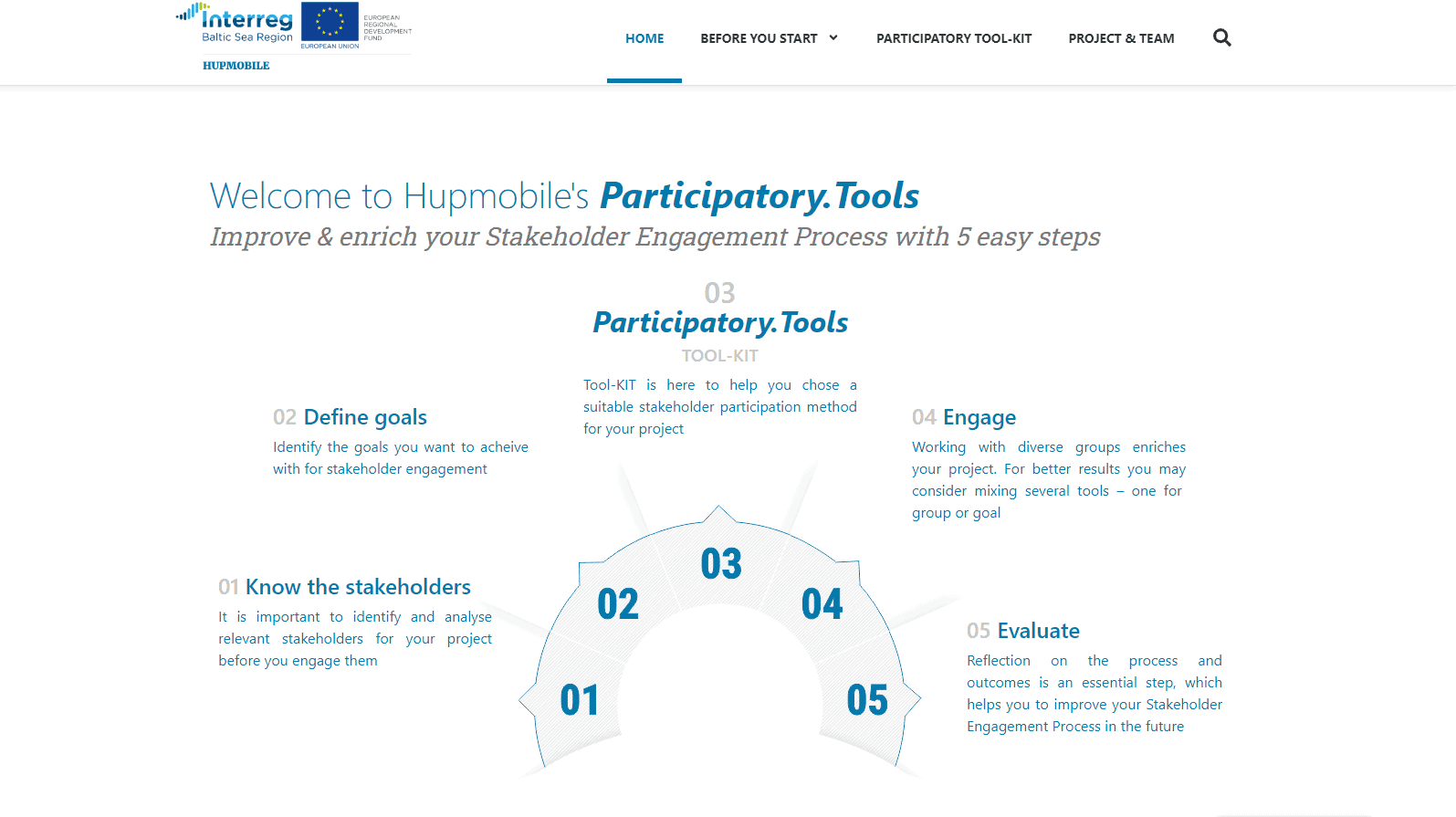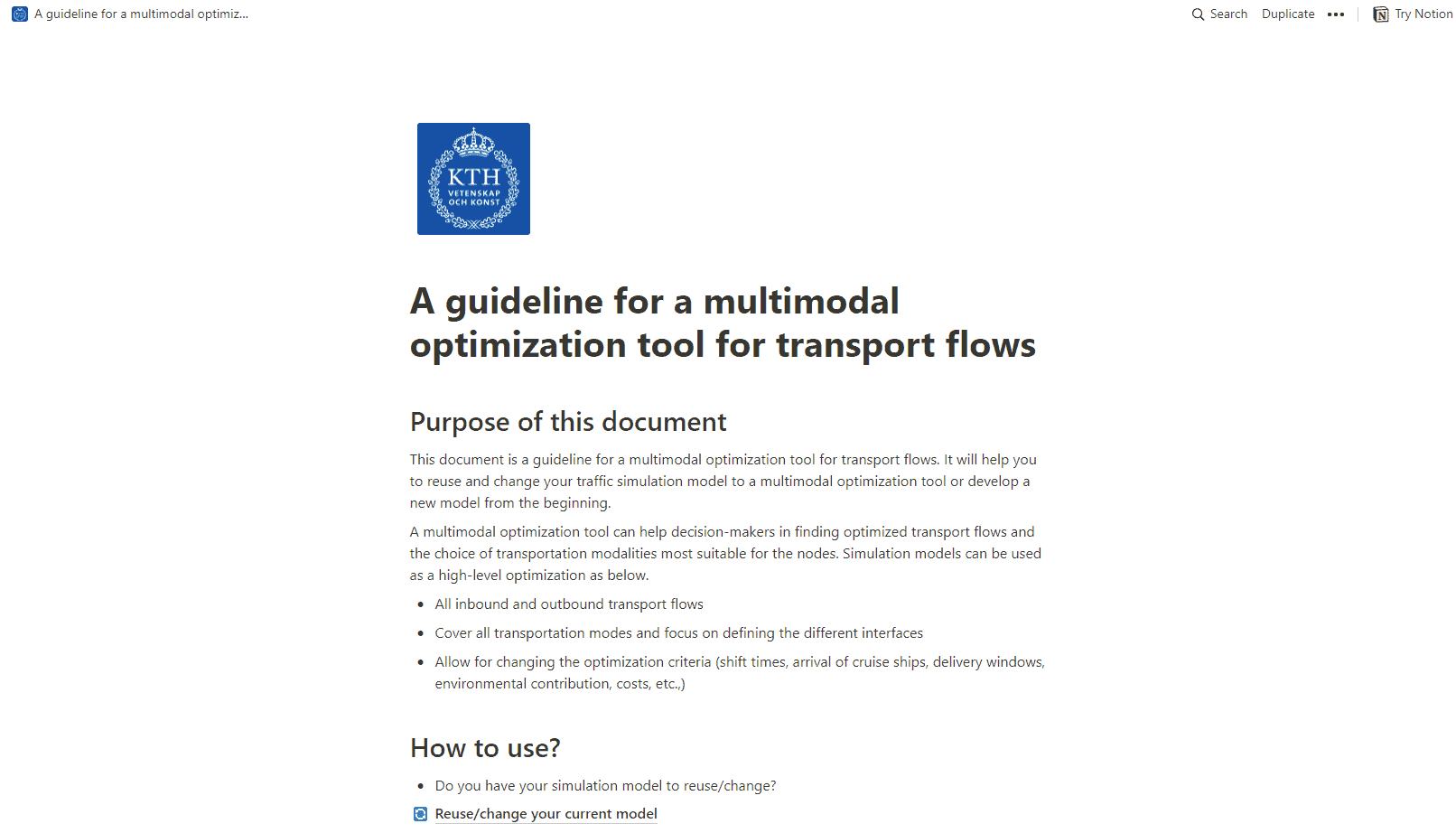HUPMOBILE
Due to differences in organising public transportation, history of city- and port planning, and path-dependency in the development of transportation infrastructure, cities in the Baltic Sea region face a variety of challenges in their urban mobility solutions. There are regional and transnational differences, as well as different perspectives taken by different stakeholders, often neglecting the larger view in sustainable urban mobility. For instance, commercial companies assess their local production logistics strongly differently from city planners who assess the needs of urban logistics. In addition, global trade is affecting the transportation flows in Europe, challenging the administrative borders of the cities.
Integrated approach
The HUPMOBILE’s objective is to provide a holistic approach to sustainable mobility solutions in cities and their perimeters. The project helped the city authorities, infrastructure operators and transport providers assess and integrate innovative mobility options into their mobility management plans and policies, e.g. concerning production and urban logistics, the use of intelligent transportation systems (ITS) solutions, and multimodality in urban transport.
Budgets
in numbers
-
1.96MillionTotal
-
1.53MillionErdf
-
0.00MillionEni + Russia
-
0.00MillionNorway
Achievements
The HUPMOBILE framework
The project contributed to a sustainable change of urban mobility by developing a comprehensive online framework that encompasses access to all the HUPMOBILE tools, including a starting questionnaire. Based on the user’s input to the starting questionnaire, the user will be guided to the appropriate selection of tools developed in the HUPMOBILE project. The online policy guideline tool gives fast access to the developed tools for the right target groups. It explains how those can be used in a supportive way to improve the sustainability of existing mobility solutions.
The framework links together separate tools (available separately on the project’s homepage), like self-assessment for the sustainability of the transport system, interactive map of the transport solutions, best practices for employers to support the use of public transport, simulation models etc. The framework empowers different stakeholders and city-planners developing sustainable mobility in their region by guiding them through these various tools and fostering their more active collaboration among each other.
All tools developed by the project can be found here, https://www.hupmobile-project.eu/materials/tools
The first ITS-BSR network
The Hupmobile project has built cross-sectoral competence networks to support the matching of the public sector challenges with private sector competencies in the field of intelligent transportation systems (ITS). In order to support that, the project carried out 8 networking events, helping to build stronger connections between ITS associations, public, private and university representatives of the region. These events have already resulted in some concrete pilot projects and initiatives between public and private sector entities.
Find more information about the network here, https://www.hupmobile-project.eu/materials/its
Outputs
Participatory.Tools: Urban mobility stakeholders engagement toolkit

Multimodal optimisation tool for transport flows

Project Stories
Partners
Aalto University
- TownAALTO
- RegionHelsinki-Uusimaa
- CountryFinland
- RepresentativeMatti Vartiainen
- Phone
- E-Mail
- Web
Free and Hanseatic City of Hamburg
- TownHamburg
- RegionHamburg
- CountryGermany
- RepresentativeJohanna Fink
- Phone
- E-Mail
- Web
City of Riga
- TownRīga
- RegionRīga
- CountryLatvia
- RepresentativeNika Kotoviča
- Phone
- E-Mail
- Web
City of Tallinn
- TownTallinn
- RegionPõhja-Eesti
- CountryEstonia
- RepresentativeLiivar Luts
- Phone
- E-Mail
- Web
City of Turku and Union of the Baltic Cities - Sustainable Cities Commission
- TownTurku
- RegionVarsinais-Suomi
- CountryFinland
- RepresentativeBjörn Grönholm
- Phone
- E-Mail
- Web
Royal Institute of Technology
- TownSödertälje
- RegionStockholms län
- CountrySweden
- RepresentativeJannicke Madeleine Baalsrud Hauge
- Phone
- E-Mail
- Web
ITL DIGITAL LAB
- Towntallinn
- RegionPõhja-Eesti
- CountryEstonia
- RepresentativeRALF-MARTIN SOE
- Phone
- E-Mail
- Web
-
Project managerTero HaahtelaAalto University
-
Legal representativeJouko LampinenAalto University
-
Financial managerTero HaahtelaAalto University
-
Communication managerTero HaahtelaAalto University



